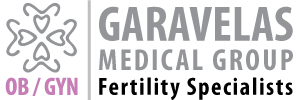Moderate exercise improves a mother’s health and has a positive effect on her emotional well-being. Some of the benefits include:
– Higher level of cardiovascular fitness
– Improved blood lipid profiles and insulin response
– A feeling of well-being from improved energy and reduced stress levels
– Enhanced maternal-infant relationship
– Alleviation of depression symptoms in those with major depressive disorders
– Research has shown that moderate exercise does not affect milk supply, milk composition, or baby’s growth. Exercising to exhaustion may have a short-term effect on lactic acid and IgA content of a mother’s milk (more details below).
Does exercise affect milk supply or nutrient content?
No. Studies have shown no difference in milk production or nutrient composition or babies’ weight gain. One study showed a slight increase in milk supply for the women who exercised regularly, but because of the small size of the study this increase may not be significant.
Does exercise affect immunologic factors in milk?
A couple of small studies have shown that there is no difference in immunologic factors after moderate exercise, but that IgA levels are decreased short-term after exhaustive exercise. Most breastfeeding mothers do not exercise to exhaustion, but for those that do so and breastfeed soon after, a decrease in IgA levels in one feeding per day is unlikely to be significant.
Does lactic acid increase in breastmilk after exercise?
Research has not shown a noticeable increase in lactic acid buildup after moderate exercise (50% & 75% intensity). The lactic acid in breastmilk does increase somewhat if mom exercises to maximum (100%) intensity, also described as exhaustive exercise. This increase may be present up to 90 minutes post-exercise. There are no known harmful effects for the baby.
Will baby refuse the breast after mom exercises?
Most studies have found no difference in acceptance of the breast, even after maximum intensity exercise.
Although a highly publicized 1992 study indicated that baby might fuss or refuse expressed milk from a mom who had been exercising at 100% intensity, the results were questionable because the babies were fed the milk by dropper (unfamiliar to these babies), and the mothers reported that the babies had not had problems with nursing after exercise in the past. A more recent study showed no change in infants’ acceptable of mom’s milk an hour after exercise, even for the moms who exercised at maximum intensity (and thus did have a slight increase in lactic acid in their milk).
If baby seems to object to the taste of mom’s milk after strenuous exercise, keep in mind that it might have nothing to do with the exercise – baby might be distracted or objecting to the salty taste of sweat on your breast, etc. If this happens consistently, mom might try expressing a little milk (3-5 mL from each breast) before nursing baby, postponing feeding for a half hour to let the lactic acid levels subside, and/or decreasing workout intensity a bit in the future.
Exercise guidelines for breastfeeding mothers
For your own comfort, you may wish to nurse before exercising and wear a good, supportive bra (especially during strenuous exercises such as running, jumping, etc).
Some babies don’t like nursing when mom has been sweating (due to the salt on mom’s skin) so you may wish to rinse your breasts or take a shower before nursing.
If you regularly lift weights or do other exercises involving repetitive arm movement and you develop plugged ducts, cut back and start again more slowly.
Keep yourself hydrated.
